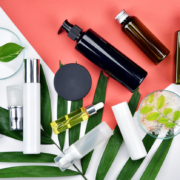As an integrative fertility specialist, my team and I help couples through their fertility journey with treatments and suggestions for lifestyle changes so they can start a healthy family. In addition to state of the art technology to help my patients conceive, I can help patients prepare their body and mind to maximize the chance of a successful pregnancy. This is referred to as integrative fertility. Here are some common questions I get from my patients.
Q: What should I eat to support my fertility?
A: The general nutrition principles for preconception are the same, whether you are trying naturally or going through fertility treatments. I usually recommend that prospective parents focus their diets on whole, fresh, and natural foods. Eat a lot of colorful vegetables and fruits, ideally, if you can get them locally and seasonally. Enjoy some nuts and seeds.
Eat less meat. If you do eat meat or dairy products, choose organic because the non-organic ones can be high in pesticides and environmental toxins. Enjoy high-quality fish and seafood, but avoid high mercury ones, such as tuna and king mackerel. Also, cut sugary, fried, processed, canned, or prepackaged foods.
Your nutrition plan should also take your health status into account, especially factors that led you to seek fertility treatment in the first place. For example, if you have polycystic ovarian syndrome (PCOS), you may do better with a lower-carbohydrate diet. If you struggle with PCOS or other conditions that could be treated with nutrition, I recommend working with a nutritionist to customize your diet program.
Nutrition is one of the most important building blocks, both for pregnancy and raising children. I recommend cooking at home as much as possible so you can choose the ingredients that go into your food.
Q: What fertility supplements do you recommend?
A: When I see my patients during their preconception appointments, I use labs to identify nutritional deficiencies. Based on the labs, I help them get to optimal rather than just normal levels. Your bloodwork may indicate a need for therapeutic doses to achieve healthy levels of these nutrients. Many common nutritional deficiencies can affect fertility.
Iron deficiency is widespread among women of reproductive age, and it can affect fertility 1.
Many North Americans are also deficient in vitamin D, which is important for fertility for both prospective moms and dads. A recent study found that among women seeking fertility treatments, those with healthy vitamin D levels had significantly higher live birth rates 2.
Magnesium is an essential mineral for general health, hormone balance, and pregnancy 3. It is also one that is harder to get through food alone.
Folic acid is a standard recommendation for any prenatal regimes, although I now recommend methylfolate (MTHF) instead.
Generally, a high-quality prenatal multivitamin with methylfolate, fish oil, magnesium, and vitamin D should cover your nutritional base. Antioxidants such as vitamin C and Coenzyme Q10 have also been shown to boost fertility for both genders. However, the best answer to this question would be to work with an integrative fertility specialist to optimize your nutrition status.
Q: What are natural ways to support my hormone balance?
A: Many women struggle with hormone imbalance symptoms such as premenstrual syndrome, acne, heavy bleeding, and fibroids.
The modern diet and lifestyle expose us to a lot of substances that act like estrogen while depleting our progesterone. The good news is that you can fix much of the hormone imbalances naturally by:
- Managing stress – stress reduces progesterone, worsening hormone imbalance
- Using nontoxic home and body care products that are free of parabens, phthalates, and perfumes
- Eating organic meats to avoid pesticides and environmental contaminants
- Eating a lot of fiber and staying regular promotes hormone balance, as constipation hinder the elimination of old hormones
- Filter your water with a filter that removes hormone disruptors. To learn about which ones I recommend, check out my resources page.
Q: Can we improve the quality of sperms and eggs without drugs?
A: During fertility treatments, it might look like the prospective moms do most of the work, but prospective dads can also do their part to maximize the chance of success. In other words, both partners can improve the quality of their sperms and eggs with these tips.
- Managing stress. Don’t forget mental health and stress management for prospective dads, especially during fertility treatments. Couples counseling and stress management practices will come in handy during this time.
- Sleeping well is essential for hormone balance and reducing oxidative stress.
- Avoiding hormone disruptors and toxic exposures, including at work
- Eating a healthy diet with the rainbow color of plants to increase antioxidants
- Drinking less coffee. Excess caffeine intake may reduce sperm quality 4.
- Maintaining a healthy weight and exercising regularly
- Not smoking and reducing alcohol as much as possible
- Making sure you consume enough zinc and folate. These nutrients are very important for the quality of both sperms and eggs, and overall pregnancy.
- Antioxidant supplements, such as CoQ10 and lutein, may be helpful for some couples.
Oxidative stress can damage the DNA and reduce the quality of sperms and eggs 5,6. Therefore, these low oxidative stress lifestyle tips will improve the chance of having high-quality embryos.
The key to a fertility-supporting lifestyle is to build healthy habits and create a supportive network around you. If you’d like to schedule an integrative fertility consult, contact me today.
References:
1. Chavarro JE, Rich-Edwards JW, Rosner BA, Willett WC. Iron intake and risk of ovulatory infertility. Obstet Gynecol. 2006;108(5):1145-1152. doi:10.1097/01.AOG.0000238333.37423.ab
2. Chu J, Gallos I, Tobias A, et al. Vitamin D and assisted reproductive treatment outcome: a prospective cohort study. Reprod Health. 2019;16(1):106. doi:10.1186/s12978-019-0769-7
3. Tonick S, Muneyyirci-Delale O. Magnesium in Women’s Health and Gynecology. OJOG. 2016;06(05):325-333. doi:10.4236/ojog.2016.65041
4. Ricci E, Viganò P, Cipriani S, et al. Coffee and caffeine intake and male infertility: a systematic review. Nutr J. 2017;16(1):37. doi:10.1186/s12937-017-0257-2
5. Alahmar AT. Role of Oxidative Stress in Male Infertility: An Updated Review. J Hum Reprod Sci. 2019;12(1):4-18. doi:10.4103/jhrs.JHRS_150_18
6. Ruder EH, Hartman TJ, Goldman MB. Impact of oxidative stress on female fertility. Curr Opin Obstet Gynecol. 2009;21(3):219-222. doi:10.1097/gco.0b013e32832924ba




